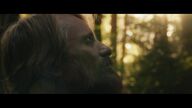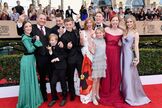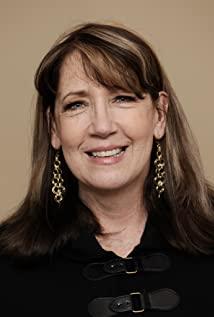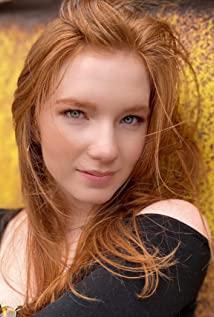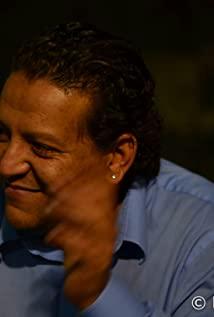"Innate human rights, to make power". As the core introduction of the film, this story about the "Utopia" is strung together.
Human rights under the ideal homeland, no power politics, no capital-controlled consumerism, no follow-through in a highly homogenized society, no blind believers under religious organizations, and no naive practitioners under the doctrine of truth.
The Utopia is the absolute human rights and the ultimate freedom. Beautiful and pure. Are those who can create an ideal country absolute equality?
The family is also a form of organization, it has a stable structure, and the existence of the upper level (grandparents/parents) is a necessary condition for the establishment of the entire organizational structure. Ben's family is no exception. There are parents-in-law on the top and five or six children on the bottom. This kind of family organization is exactly in line with two organizational forms. The parents-in-law represent the family form in the "real world", while I think they represent the family form in the "ideal country".
The "real world" family form represented by the parents-in-law is not accepted and recognized by Ben. Just like the views he passed on to his children, such a family form is a "morbid sense of rights".
In order to escape this morbidity, Ben and his wife created a unique world for the children. In this world, children are elves who are exiled in nature. They return to their biological instincts, hunt in the mountains and forests, play in the streams, read and communicate under the stars, taste the food without additives and pollution, and enjoy the wonderful performance of simple musical instruments. music. They are self-sufficient, they don't need to connect to the world through shopping sprees, they don't need to submit to any organization, and they don't need to be oppressed by the purpose of speech.
Such a form is not another kind of patriarchal power "under the real world". The books that children read are provided by Ben, and the acquired ideas are colored with the guidance of their own will. Every time the discussion and exchange of views is not a collision of diverse exchanges, but the reinforcement of the same thought in the mouths of multiple people for multiple recognitions and affirmations. When Portvey got the admission letter from a famous school, his sorrow was obviously greater than his joy, and he only dared to carefully take it out to observe it in the night when no one saw it. Impulsively, I told my father that I got the admission letter, and what I got was not joy, but "I know nothing about it, and I didn't agree to it." The so-called "morbid sense of rights" may not only exist in those special organizations, such as government, capital, and religion. Even the "Utopia" like Xanadu cannot escape from this "morbid sense of rights".
When returning to the reinforced concrete world to participate in his wife's funeral, the family's behavior was like ink blots on white paper, which was extraordinarily abrupt. "Prohibited" behavior at family dinners (underage children drinking alcohol), rejection of chemically-added foods in restaurants, colorful rainbows embedded in the dominant color of black at funerals, their language and behavior are out of place in this conventional world, even if they use straightforward The language explains some of the rules of this world, treat adults and children equally, there is no deliberate concealment and avoidance.
It's just that in this real world, only "same people" are accepted, and those who run the opposite way will be classified as different. In this real world, they were stunned by the stinging pain, and they looked at this new world with their novel and innocent eyes, and in exchange they were not surprised but even more incomprehensible.
The wise man who entered the world, the fool who was born. The moment a person is born, there is an insurmountable wall there. Absolute confrontation cannot make this wall disappear spontaneously, but will only exacerbate the gap between reality and ideals. In fact, at the end, the family returned to the farm, and the children received compulsory education as normal. The sense of happiness and order in life did not change because of this. The family was still neat, happy, and fulfilling their duties.
Perhaps, there is no incompatible conflict between the real world and the Utopia. In the real world, one can retain the soul of the Utopia. Under the control of power, one can enjoy the security provided by the world of power, and only then can one pursue an ideological "Utopia".
View more about Captain Fantastic reviews



